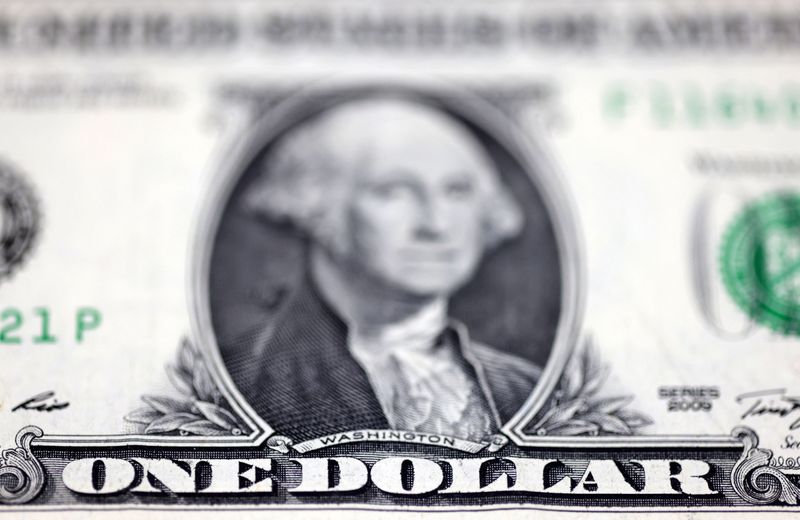By Karen Brettell
NEW YORK (Reuters) - The U.S. dollar index surged to a one-month high on Thursday as Federal Reserve officials spoke of the need for further rate hikes, and investors reevaluated Wednesday's minutes from the U.S. central bank's July meeting as being more hawkish than originally thought.
The Fed needs to keep raising borrowing costs to bring high inflation under control, a string of U.S. central bank officials said on Thursday, even as they debated how fast and how high to lift them.
St. Louis Fed President James Bullard said he is leaning toward supporting a third straight 75-basis-point interest rate hike in September.
San Francisco Fed President Mary Daly said hiking rates by 50 or 75 basis points next month would be a "reasonable" way to get short-term borrowing costs to "a little bit above" 3% by the end of this year, and on their way to a little bit higher in 2023.
"The Fed's rhetoric has been very steadfast from almost everybody – we're got to raise rates, we've got to raise rates, rates are going higher," said Joseph Trevisani, senior analyst at FXStreet.com in New York.
The dollar pared gains on Wednesday after the Fed's July meeting minutes showed central bank officials were concerned they could raise rates too far in their commitment to get inflation under control, which was interpreted as modestly dovish.
The minutes also flagged an important dimension of the Fed's debate in coming months: when to slow down the rate increases.
But analysts said it was wrong to focus on these parts of the minutes instead of the overriding view that rates need to keep heading higher.
"Except for the part about slower pace of rate hikes, the rest of the minutes read very hawkish," Win Thin, global head of currency strategy at Brown Brothers Harriman, said in a report.
The dollar index was last up 0.71% at 107.39, after reaching 107.57, the highest since July 19.
The euro reached $1.0078, the weakest since July 18. The dollar gained to 135.90 against the yen, the weakest level for the Japanese currency since July 28.
Sterling slipped as far as $1.1920 the lowest since July 22.
The odds of a 75 basis-point hike in September have dropped to 42% since the meeting minutes, from 52% earlier on Wednesday, with a 50 basis-point hike now assigned a 58% probability.
However, consumer price inflation and jobs data for August, due before the Fed's September meeting, will likely affect the size of a rate hike.
The September meeting will also offer new information on how far Fed officials expect rates to rise. Traders see the benchmark rate peaking at 3.66% in March. Trevisani said he expected the Fed to go up to around 4%, adding that even that is unlikely to be enough to tame prices rising at an annual pace of 8.5%.

Data on Thursday showed the number of Americans filing new claims for unemployment benefits fell last week and the prior period's data was revised sharply lower, while a separate report from the Philadelphia Fed on Thursday revealed a measure of employment at factories in the Mid-Atlantic region surged in August.
A report from the National Association of Realtors, however, showed existing home sales dropped 5.9% to a seasonally adjusted annual rate of 4.81 million units in July, the lowest level since May 2020.